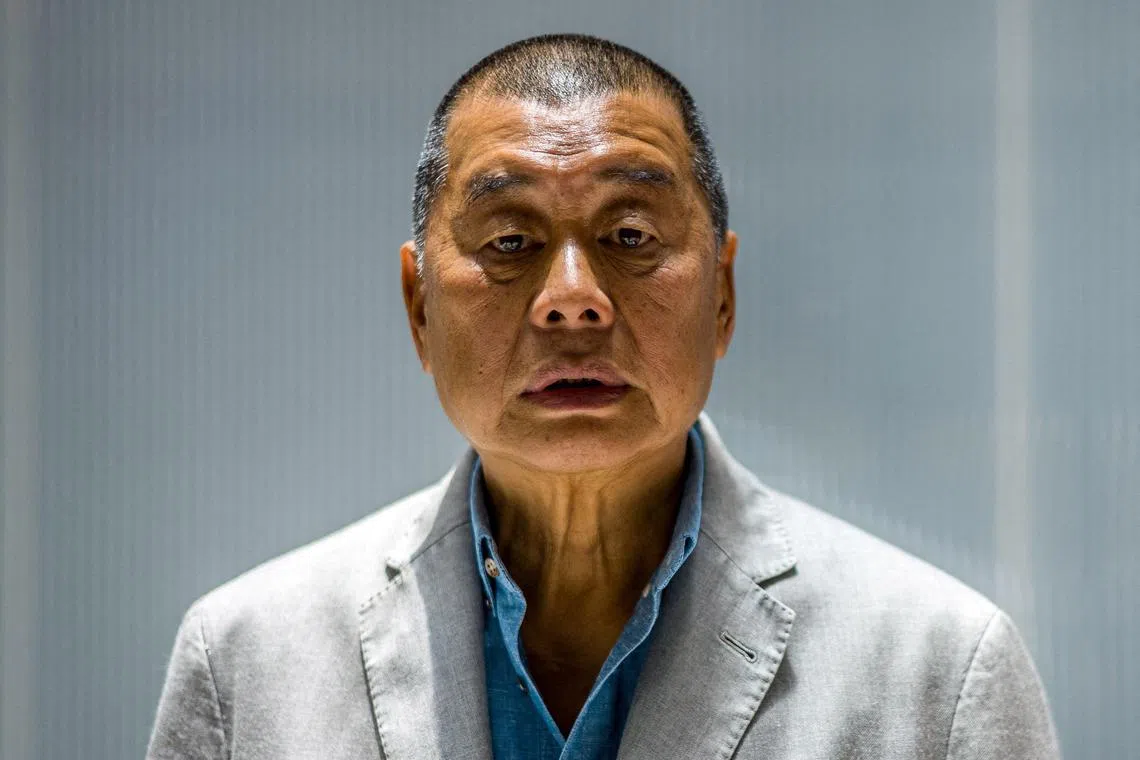Hong Kong court delays media tycoon Jimmy Lai’s national security trial
Sign up now: Get ST's newsletters delivered to your inbox

The court will meet again on Dec 13 to discuss a timetable for Jimmy Lai’s trial.
PHOTO: AFP
Follow topic:
HONG KONG – A Hong Kong court has delayed the start of media mogul Jimmy Lai’s national security law trial at the request of the government.
The court will meet again on Dec 13 to discuss a timetable for Lai’s trial, which was originally scheduled to start on Thursday.
The government sought the adjournment to prevent Lai’s British lawyer from representing him during the trial.
After failing to get the local courts to bar Mr Timothy Owen, Hong Kong Chief Executive John Lee said on Monday that he would ask Beijing to examine whether overseas lawyers should be allowed
Lai, 75, faces a possible life sentence if he is convicted of colluding with foreign forces in a trial.
Prosecutors allege that Lai sought international sanctions against Hong Kong and China through his pro-democracy newspaper.
Mr Lee said on Monday that the government currently has no way of ensuring overseas lawyers have no conflict of interest, or have not been coerced by foreign governments.
This would be the first time the National People’s Congress (NPC) Standing Committee offers an interpretation of the national security law – endorsed by President Xi Jinping – since passing it in 2020 without public debate or a vote by Hong Kong’s elected legislature.
The NPC is next expected to meet later in December.
Beijing may be considering identifying a group of designated lawyers to handle national security law trials, the South China Morning Post reported, citing an unidentified individual.
The now-closed Apple Daily newspaper, which Lai founded, was one of Hong Kong’s most popular media outlets and championed greater freedoms in the city. It was forced to close in 2021.
The United States, Britain and other Western nations have condemned the closure of Apple Daily and Hong Kong’s security law, with US President Joe Biden saying Beijing was using it to “suppress independent media and silence dissenting views”.
The national security law is aimed at punishing acts of secession, subversion, terrorism and “collusion with foreign and external forces”. BLOOMBERG

